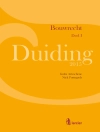Social justice and human rights movements are entering a new phase. Social media, artificial intelligence, and digital forensics are reshaping advocacy and compliance. Technicians, lawmakers, and advocates, sometimes in collaboration with the private sector, have increasingly gravitated toward the possibilities and dangers inherent in the nonhuman. #Human Rights examines how new technologies interact with older models of rights claiming and communication, influencing and reshaping the modern-day pursuit of justice.
Ronald Niezen argues that the impacts of information technologies on human rights are not found through an exclusive focus on sophisticated, expert-driven forms of data management but in considering how these technologies are interacting with other, ‚traditional‘ forms of media to produce new avenues of expression, public sympathy, redress of grievances, and sources of the self. Niezen considers various ways that the pursuit of justice is happening via new technologies, including crowdsourcing, social media–facilitated mobilizations (and enclosures), Whats App activist networks, and the selective attention of Google’s search engine algorithm. He uncovers how emerging technologies of data management and social media influence the ways that human rights claimants and their allies pursue justice, and the ’new victimology‘ that prioritizes and represents strategic lives and types of violence over others. #Human Rights paints a striking and important panoramic picture of the contest between authoritarianism and the new tools by which people attempt to leverage human rights and bring the powerful to account.
Inhaltsverzeichnis
Introduction: Utopia and Despair
1. Street Justice
2. Human Rights 3.0
3. Belling the Cat
4. Shouting Above the Noise
5. Media War
6. The Politics of Memory
Conclusion: Truth and Power
Über den Autor
Ronald Niezen is the Katharine A. Pearson Chair in Civil Society and Public Policy in the Faculty of Law and in the Department of Anthropology at Mc Gill University.












